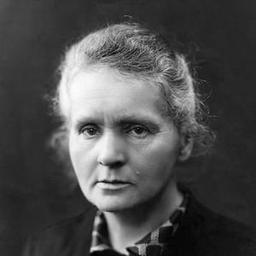Scott Young
Scott Young is a well-known blogger, author, and entrepreneur who has gained recognition for his writings on topics related to personal development, learning, productivity, and self-improvement. He started his blog at a young age, just before his 18th birthday, and over the years, he has shared his thoughts and experiences on various aspects of life.
30 Quotes
"Not only is good advice typically “obvious,” but a lot of “counterintuitive” advice is actually bad. Somewhat surprisingly, even if advice is obvious, it’s still useful to hear it!"
— Scott Young
Good Advice is ""Obvious"""We judge obviousness not by if the information is strictly new—but if it violates our intuitions. Unfortunately, our intuitions are often fuzzy, which makes many scenarios seem plausible."
— Scott Young
Good Advice is ""Obvious"""I remember asking James Clear, author of the enormously successful Atomic Habits, to tell me what he did. He told me he had been on 200+ podcasts in the first six months of the book’s launch, including around 80 that were released the first week his book was out."
— Scott Young
Good Advice is ""Obvious"""Knowledge typically isn’t about discovering secrets. Instead, it’s about figuring out which boring, yet plausible, account of how things work is actually right."
— Scott Young
Good Advice is ""Obvious"""The results from our analyses suggest that concentrating the hours of English instruction in shorter periods of time is more beneficial for the students’ learning than distributing them in many months."
— Scott Young
Learning, Fast and Slow: Do Intensive Learning Projects Work Better Than Slow Ones?"Contextual interference, for instance, tends to be helpful, but it can backfire for complex skills or poorer students. Similarly, retrieval practice tends to be helpful—unless the person can’t retrieve what they’re trying to remember."
— Scott Young
Learning, Fast and Slow: Do Intensive Learning Projects Work Better Than Slow Ones?"Serrano and Muñoz cite one study that evaluated qualitative performance from intensive/extensive studying schedules and found the intensive classrooms had better group cohesion and motivation."
— Scott Young
Learning, Fast and Slow: Do Intensive Learning Projects Work Better Than Slow Ones?"A well-known consequence of the spacing effect is that massed presentations tend to be more effective initially, but their advantage typically fades over time."
— Scott Young
Learning, Fast and Slow: Do Intensive Learning Projects Work Better Than Slow Ones?"Intensive projects should be followed by more leisurely maintenance. Even if an intensive burst can get you quickly to proficiency, it probably makes sense to continue to practice at a more leisurely pace for months or years after if you don’t want that proficiency to decline too abruptly."
— Scott Young
Learning, Fast and Slow: Do Intensive Learning Projects Work Better Than Slow Ones?"Understanding an expert consensus doesn’t make you an expert. Understanding knowledge is a much lower bar than creating knowledge. It’s also a lower bar than successfully applying knowledge to diverse domains."
— Scott Young
The Ten-Book Rule for Smarter Thinking"A question is reasonable when it is both something a layperson could readily formulate AND a good answer already exists."
— Scott Young
The Ten-Book Rule for Smarter Thinking"Ten books are considerably less than what it takes to become an expert in anything. But if you want to answer a reasonable question (that meets the criteria above), you can probably get a satisfactory answer just by doing the work."
— Scott Young
The Ten-Book Rule for Smarter Thinking"Up-to-date textbooks. Textbooks are one of the most valuable books to read because they are written to represent expert consensus."
— Scott Young
The Ten-Book Rule for Smarter Thinking"Academic monographs. Monographs tend to be more focused than textbooks, so while you may not get a general survey of the field, you’ll often get closer to the answer you seek via a monograph."
— Scott Young
The Ten-Book Rule for Smarter Thinking"I think there are two broad ways to learn more about the world: building up from the basics, or learning for specific ends. Both have merit, but after you have mastered the basics, the sheer volume of knowledge explodes, so it helps to ask more pointed questions."
— Scott Young
The Ten-Book Rule for Smarter Thinking"any paper written, at any stage in your career, has about an equal probability of being your top cited paper"
— Scott Young
Creativity is Productivity"Nearly two centuries ago, the Belgian sociologist Adolphe Quetelet observed the impressively tight link between personal productivity and creative success."
— Scott Young
Creativity is Productivity"Dean Simonton has analyzed the creative output of individuals across many domains and suggests an “equal-odds” rule best describes it: once a creative individual starts publishing in a field, each piece of work they produce has roughly equal odds of world-breaking impact."
— Scott Young
Creativity is Productivity"the most important determinant of creative success is simply how much work you produce."
— Scott Young
Creativity is Productivity"Be at a knowledge frontier. You can’t contribute anything new if you’re not at the boundary of knowledge for a discipline."
— Scott Young
Creativity is Productivity"Idea generation and public reception are stochastic processes. Once you reach the threshold, further advances have a significant random component. This might be due to the trial-and-error process of finding new advances. Or it might come from the unpredictability of public taste as to what work receives acclaim."
— Scott Young
Creativity is Productivity"Price’s Law captures this relationship in scientific output, estimating that half of the research of a given discipline will be produced by the square root of the number of researchers."
— Scott Young
Creativity is Productivity"Over a surprisingly wide range of pursuits, creativity is productivity, and we will have more hits if we take more swings."
— Scott Young
Creativity is Productivity"Everyone wants advanced knowledge. But it’s typically the basics that matter most."
— Scott Young
You’re Never Too Good for the Basics"All skills break down into elemental components–coding has commands, painting has brushstrokes, comedy has jokes. Mastery of the performance results from mastery of the parts."
— Scott Young
You’re Never Too Good for the Basics"We ignore the basics, not because they’re hidden, but because they’re so obvious."
— Scott Young
You’re Never Too Good for the Basics"One way to return to the basics is to change the environment."
— Scott Young
You’re Never Too Good for the Basics"Another strategy is to change your goals. When you set a different standard for what you want to produce, your actions must adapt."
— Scott Young
You’re Never Too Good for the Basics"Finally, you can find room for improvement by observing and analyzing your work after the fact."
— Scott Young
You’re Never Too Good for the Basics"What are the basics in your craft? What are you doing to master them?"
— Scott Young
You’re Never Too Good for the BasicsExplore More Quotes 📚
Want to Save Quotes?
Glasp is a social web highlighter that people can highlight and organize quotes and thoughts from the web, and access other like-minded people’s learning.

















